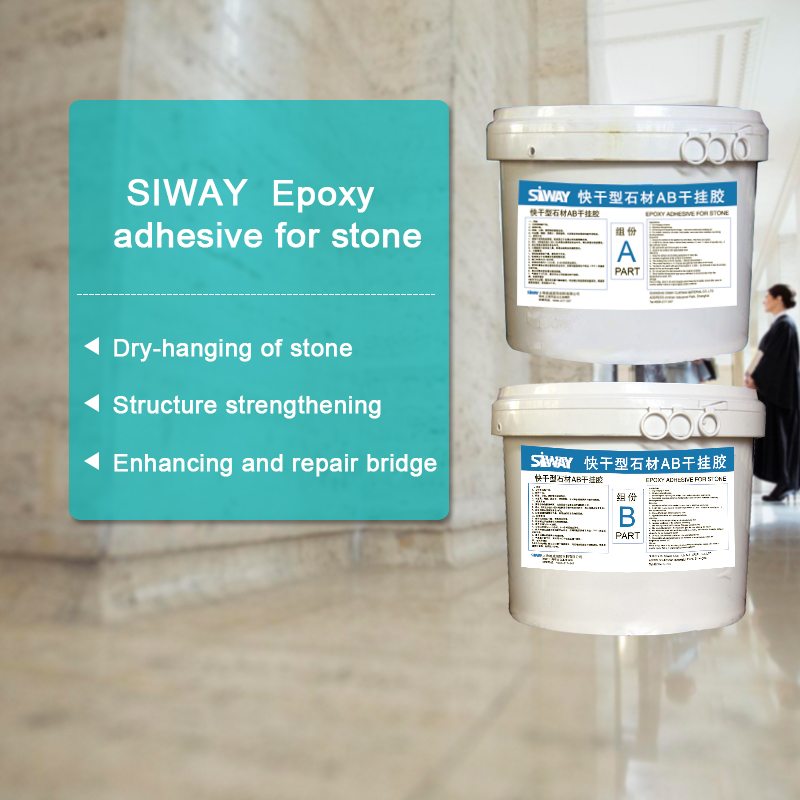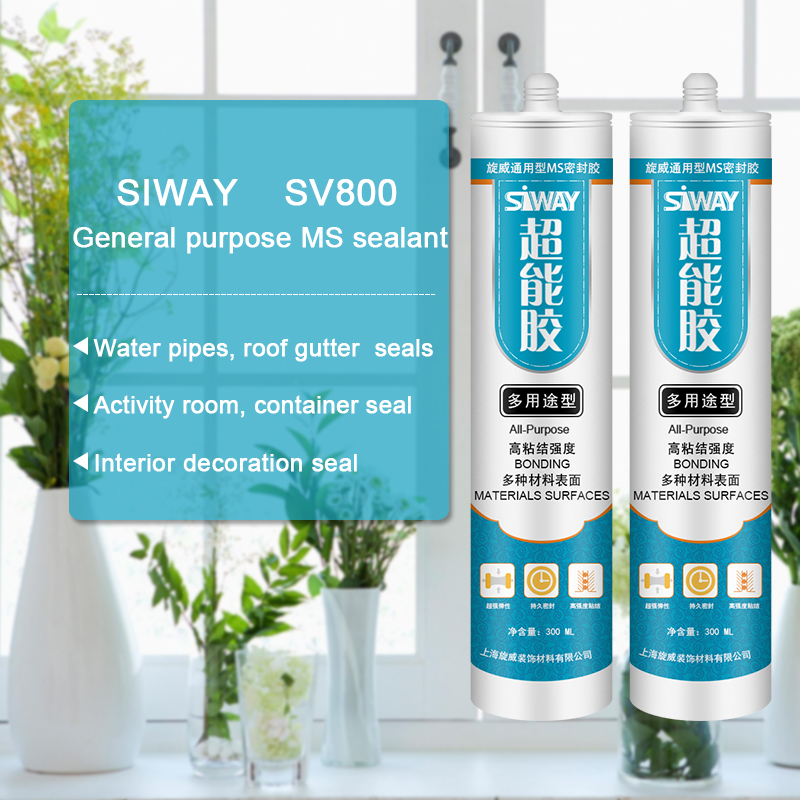Renewable Design for Siway SV-602 Epoxy Structural Adhesive A/B to Sao Paulo Factory
Short Description:
Description SV-602 is a 2-part structural epoxy adhesive developed for such application as dry fixing cladding. It has strong adhesion to metals, woods, reinforced plastics stone, ceramic and masonry. It is the best choice for bonding parts which must withstand weather, moisture and temperature fluctuations. SV-602 will adhere with minimum surface preparation and has a low coefficient of expansion. Key Features 1. Room temperature curing Epoxy adhesive 2. Fast cure at room temperature,...
Bear "Customer first, Quality first" in mind, we work closely with our customers and provide them with efficient and professional services for Renewable Design for Siway SV-602 Epoxy Structural Adhesive A/B to Sao Paulo Factory, We warmly welcome customers from all over the world for any kind of cooperation with us to build a mutual benefit future. We are devoting ourselves wholeheartedly to offer customers the best service.
Description
SV-602 is a 2-part structural epoxy adhesive developed for such application as dry fixing cladding. It has strong adhesion to metals, woods, reinforced plastics stone, ceramic and masonry. It is the best choice for bonding parts which must withstand weather, moisture and temperature fluctuations. SV-602 will adhere with minimum surface preparation and has a low coefficient of expansion.
Key Features
1. Room temperature curing Epoxy adhesive
2. Fast cure at room temperature, <40 min for reaching a tack-free status under standard environment (STD: 23℃, 50% humidity)
3. Mix ratio of 1:1 by volume or by weight
4. Good mechanical property
5. Bonds a wide variety of building materials
6. Good waterproofing and chemical resistance
Basic Application
1, the external walls of stone material, ceramic and other hang bond;
2, concrete, ceramics, stone, wood and other prefabricated split, bonding and jointing;
3, concrete, stone and so on crack repair;
4, the structure of the localization, anchor, reinforcement and reinforcement.
Technical data sheet
The following data is for reference only and is not recommended for the specification
| Shear strength | Stainless steel-stainless steel/Standard conditions | ≥18 | JC887-2001 | ||
| Pressure shear strength | Stone-stone/ Standard conditions | ≥12 | |||
| Stone-stone/ The freeze-thaw cycle 50 times | ≥10 | ||||
| Stone – stainless steel/ Standard conditions | ≥12 | ||||
| Standard conditions:Temperature=23℃,relative humidity=50%,48 hours curing | |||||
| attribute | SV-602-A | SV-602-B | SV-602(After mixing) | ||
| Colour | gray | white | grey | ||
| Density(g/cm³) | 1.8 | 1.8 | 1.8 | ||
| Viscosity(PaS) | 200-400 | 150-250 | |||
| Effective operating time(23℃) | N/A | N/A | 20min | ||
Certification
JC 887-2001
Color
Part A-Grey Paste/Part B-White Paste
Package
9kg/9kg per unit and 15kg/15kg per unit
Shelf life
12 months
Note
If you want the TDS or MSDS or other details, please contact with our sales person.
Watch the full episode: https://www.youtube.com/watch?v=WNF-kUSfy80
Richard Trethewey shows an innovative new way to seal ducts from the inside. (See below for steps.)
Click here to SUBSCRIBE to the official This Old House YouTube channel: https://www.youtube.com/subscription_center?add_user=thisoldhouse
Watch new episodes of Ask TOH: https://www.thisoldhouse.com/toh/tv/ask-toh/video/0,,,00.html
Steps for How to Seal Leaky Ductwork:
1. Remove the grilles from all of the supply and return registers.
2. Plug each duct register with foam rubber and wide strips of tape.
3. Pressurize the duct system with a blower fan.
4. Use a computer to analyze the data to determine the amount of air leaking from the ducts.
5. Use the blower fan to mist the inside of all the dust with liquid-rubber sealant.
6. The sealant will find and plug all air-leaking holes, cracks, and seams.
7. After applying the sealant, run another pressurized blower test to verify the improved results.
Follow This Old House and Ask This Old House:
Facebook: https://www.facebook.com/ThisOldHouse
Twitter: https://twitter.com/thisoldhouse
https://twitter.com/asktoh
Pinterest: https://www.pinterest.com/thisoldhouse/
G+: https://plus.google.com/+thisoldhouse/posts
Instagram: https://instagram.com/thisoldhouse
Tumblr: https://thisoldhouse.tumblr.com/



